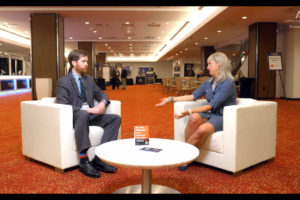CURRENT MONTH (June 2022)
Antitrust Law
Goodwill, Non-Compete Provisions & the Federal Trade Commission
By Barbara Sicalides and Frank Griffin, IV, Troutman Pepper Hamilton Sanders, LLP
On June 13, 2022, as a condition to allowing ARKO Corp. to acquire indirectly certain retail fuel assets, including sixty Express Stop retail locations from Corrigan Oil Company, the Federal Trade Commission (“FTC”) reduced the duration of the non-competition provision. In addition to duration, the FTC challenged the geographic scope of the non-compete. The proposed consent decree also required the parties to rescind parts of their asset purchase agreement so as to release back to Corrigan five local retail fuel locations in Michigan. The vote of the commissioners was unanimous.
Although commissioners expressly acknowledged that non-compete clauses may protect a legitimate business interest, such as the goodwill acquired in a transaction, they made clear that such clauses must be “appropriately limited in geographic scope and duration.” They further noted “that noncompete clauses in a merger agreement may unduly and illegitimately restrain competition when both of the parties remain competitors in other markets.”
The FTC consent decree limited the ARKO/Corrigan non-compete to a duration of no longer than three years. Additionally, the offending non-compete covered a geography broader than that of the business sold; instead, the scope was coextensive with the buyer’s business. The consent decree, therefore, required that the non-compete cover only the geography of the assets being sold.
The FTC’s consent decree goes beyond the asset purchase agreement that was the subject of the investigation. The settlement prohibits the buyers from entering into or enforcing any non-compete agreement related to acquisitions of any retail business that restricts competition solely around a retail fuel business already owned or operated by the acquiring company and mandates that buyers notify third parties subject to similar non-compete agreements of the acquiring company’s obligations under the consent decree.
Accordingly, in transactions involving competitors, the parties should take into consideration the FTC’s recent action when crafting the scope of any non-compete provisions—the time required to protect the value of the goodwill and coverage should be coextensive with and based on the business being sold.
FTC Requires Divestitures in Gasoline Terminal Deal
By Barbara Sicalides, Daniel Anziska, and Leah Katz, Troutman Pepper Hamilton Sanders, LLP
The Federal Trade Commission (“FTC”) is increasingly focused on competition in gasoline and fuel markets, and it has “redoubl[ed] its commitment” to “aggressive antitrust enforcement” in these areas. The most recent example of this renewed commitment came June 2, 2022, with the announcement of a consent agreement requiring the divestiture of petroleum terminals in two states.
The proposed transaction involved petroleum terminal and pipeline companies Buckeye Partners and Magellan Midstream Partners. Buckeye sought to acquire twenty-six Magellan-owned light petroleum product terminals largely located in the Southeast for approximately $435 million. The FTC alleged that the proposed acquisition would substantially lessen competition for terminaling services for light petroleum products and gasoline in three markets in South Carolina and Alabama, increasing the likelihood of collusion between competitors and increasing prices.
The terminals, which dispense fuel into tanker trucks for delivery, are a “critical” aspect of the gasoline supply chain, and the FTC’s announcement of the consent agreement reiterated its commitment to ensuring competitive gasoline and diesel markets. This announcement follows similar recent statements by the FTC and calls from President Biden for the FTC to more aggressively monitor oil and gas transactions.
In addition to requiring the divestiture of five terminals in the three markets in South Carolina and Alabama, the consent agreement also contains a prior approval provision requiring Buckeye to seek prior approval from the FTC before acquiring any light petroleum products terminal within a sixty-mile radius of the divested terminals for a period of ten years. U.S. Venture, the divestiture buyer, must also seek prior approval before transferring any of the divested terminals to any buyer.
The Commissioners’ Statement accompanying the announcement of the consent agreement drew attention to the inclusion of the prior approval provision, noting that the inclusions of such provisions in consent agreements is now standard, but acknowledging that such provisions might not always benefit competition or consumers. The Statement noted that the FTC received numerous informative comments regarding potentially harmful effects of a prior approval provision included in another recent oil and gas transaction, and it encouraged stakeholders to provide feedback on the Buckeye prior approval provision and those that appear in future consent agreements.
Banking Law
Will the Push for a Bank Safe Harbor on Cannabis Succeed?
By Aaron P. Kouhoupt, Robert W. Savoie, Heidi Urness, McGlinchey Stafford, PLLC
For nearly a decade, financial institutions operating in states with regulated cannabis markets (whether medicinal or recreational) have struggled with their ability to offer banking services to entities legally operating within their respective state. With only eleven states remaining that prohibit either medicinal or recreational use of cannabis, this issue has only grown more prevalent.
The Conference of State Bank Supervisors (CSBS) has now weighed in, sending letters to both the United States House of Representatives and the Senate, stressing the importance of providing safe harbor for financial institutions offering financial products and services to cannabis or cannabis ancillary businesses under the proposed Secure and Fair Enforcement (SAFE) Banking Act.
In the letters, CSBS CEO James M. Cooper focused on the importance of the regulatory clarity the SAFE Banking Act would provide to the financial services industry. Cooper further noted the SAFE Banking Act would address public safety concerns that result from state-compliant marijuana businesses’ lack of access to financial services. CSBS’s letters also request and encourage the House and Senate to extend the safe harbor to all financial services, including state-licensed money transmitters used by businesses nationwide to transfer funds from one party or business to another and accept customer payments for consumer purchases. According to the letters, failing to include these service providers would perpetuate the adverse impacts of regulatory uncertainty surrounding cannabis financial services, not the least of which is the significant public safety issues associated with cash-only operations.
The SAFE Banking Act has historically had success in the U.S. House, having been passed in the House six times as of the date of this article, and most recently in February 2022, while continuing to stall in the Senate. Whether CSBS’s letters offering public and forceful support of the SAFE Banking Act will ultimately contribute to the eventual success of the bill in the Senate is an issue well worth following. However, under the current regulatory framework, financial institutions will continue to confront complex regulatory issues and remain in an awkward limbo when faced with customers seeking cannabis-related financial products and services from companies operating in compliance with state (and even federal, with respect to hemp and cannabinoids derived therefrom) cannabis rules and regulations.
Congress Introduces the American Data Privacy and Protection Act
By Sanford Shatz, McGlinchey Stafford, PLLC
On June 23, 2022, Representatives Pallone, Rodgers, Schakowsky, and Bilirakis introduced the American Data Privacy and Protection Act, HR 8152. This Act represents an effort to create a comprehensive federal privacy law. Information that could be linked to a person or a device would be covered, and the Act would provide extra protections for sensitive covered data. The Act would not cover publicly available data or de-identified data.
The Act is modelled after existing state laws, such as the California Consumer Protection Act and Europe’s GDPR. It provides for limits on the data that can be collected and stored; provides consumers with opt-out rights; requires a transparent privacy policy; permits consumers to correct, delete, or obtain their information; and creates new responsibilities for covered entities, service providers, and third parties.
The Act provides certain exceptions to permit covered entities to use data to complete transactions and customer requests, maintain products and services, respond to “security incidents,” conduct internal research and analysis, and comply with legal requirements. In addition, the Act may exempt smaller entities that do not meet revenue or data thresholds.
The Act would be enforced by the FTC, state actors including Attorneys General, and individuals through a private right of action.
The bill passed the House Subcommittee on Consumer Protection and Commerce and is moving to the House Committee on Energy and Commerce, where it is expected to pass. The bill faces significant headwinds in the Senate.
OCC Reports Quarterly Improvement in Mortgage Performance
By Sanford Shatz, McGlinchey Stafford, PLLC
On June 27, 2022, the Office of the Comptroller of the Currency (OCC) released its First Quarter 2022 Mortgage Metrics Report on the status of first-lien home mortgages held by seven national banks with large servicing portfolios. This quarter, the reporting banks serviced approximately 12.2 million first-lien residential mortgages, with an unpaid principal balance of $2.6T, representing 22% of all outstanding residential mortgage debt.
The OCC reported that mortgage performance continued to improve. 96.9% of all mortgages were current and performing, an increase from 94.2% the year earlier. Seriously delinquent mortgages—those sixty or more days past due, or thirty or more days past due for borrowers in bankruptcy—declined to 1.8% from 2.3% in the prior quarter and 4.6% a year earlier. The servicers modified 42,427 mortgages, a 10.7% decline from the prior quarter, with most modifications reducing the borrowers’ payments by reducing the interest rate or increasing the loan term. Finally, servicers reported an increase in beginning foreclosure activity, to pre-pandemic levels, and an increase in home forfeiture completions, foreclosures, short sales, and deeds-in-lieu, to 2,410, a 26.8% increase from a year earlier.
Consumer Finance
CFPB Issues Advance Notice of Proposed Rulemaking on Credit Card Late Fees and Late Payments
By Eric Mogilnicki and Blair Hotz, Covington & Burling LLP
On June 22, 2022, the Consumer Financial Protection Bureau issued an advanced notice of proposed rulemaking seeking information from credit card issuers, consumer groups, and the public regarding credit card late fees and late payments. In particular, the Bureau requested information regarding:
- the factors card issuers use to set late fee amounts, including whether those factors include revenue goals or profitability;
- the costs and losses card issuers experience from late payments;
- whether late fees have a deterrent effect;
- cardholder behavior related to late payments;
- the methods card issuers use to facilitate and encourage timely payments, such as automatic payments and notifications;
- the use of safe harbor provisions found in Regulation Z; and
- the amount of income that card issuers receive from interest and fees.
In prepared remarks, CFPB Director Rohit Chopra characterized the advanced notice of proposed rulemaking as part of the Bureau’s “broader initiative to improve the credit card market” and cast doubt on certain fee-related safe harbor provisions that the Federal Reserve adopted in 2010 pursuant to the CARD Act.
CFPB Issues Final Rule on the Prohibition of Inclusion of Adverse Information in Consumer Reporting in Cases of Human Trafficking
By Eric Mogilnicki and Blair Hotz, Covington & Burling LLP
On June 23, 2022, the Bureau issued a final rule amending Regulation V to address recent legislation that prohibits consumer reporting agencies from reporting certain adverse information regarding victims of human trafficking. The final rule is effective July 25, 2022.
The final rule makes various changes to Regulation V, including:
- providing guidance on how individuals can document their status as survivors of human trafficking;
- providing guidance on how individuals can report their status as survivors of human trafficking to credit reporting companies; and
- requiring credit reporting agencies to block adverse information in credit reports after receiving documentation that a consumer is a survivor of human trafficking.
The final rule will apply to all credit reporting agencies, including specialty credit reporting companies that focus on areas such as employment screening, personal property insurance, and medical, low-income, and subprime lending.
FTC Staff Provides Annual Report to CFPB on 2021 Enforcement Actions
By Eric Mogilnicki & Uttara Dukkipati, Covington & Burling LLP
On June 3, 2022, the Federal Trade Commission (“FTC”) responded to a CFPB request for information regarding its 2021 enforcement activities regarding the Truth in Lending Act, Consumer Leasing Act, and Electronic Fund Transfer Act.
The report highlights the FTC’s enforcement actions in the areas of automobile purchases and financing, payday lending, credit repair, debt relief, and electronic fund transfers. The report also highlights the efforts of the FTC’s Military Task Force, and the FTC’s consumer and business education efforts relating on truth in lending and electronic fund transfer issues, particularly as they pertain to vehicle purchases and financing, add-on products and services, and debit and prepaid cards.
CFPB Opens New Office of Competition and Innovation
By Eric Mogilnicki and Blair Hotz, Covington & Burling LLP
On May 24, 2022, the Bureau announced the opening of an Office of Competition and Innovation, replacing the Office of Innovation opened in 2018. The Bureau’s announcement is critical of the Office of Innovation, claiming that its “primary purpose was to process applications for No Action Letters and Sandboxes that applied to an individual company’s specific product offering.” The Bureau asserted that “[a]fter a review of these programs, the agency concludes that the initiatives proved to be ineffective.”
The new Office of Competition and Innovation is designed to address competition and innovation in the financial services industry by:
- exploring ways to reduce the barriers for consumers to switch accounts or providers;
- researching aspects of the financial services industry that make it more difficult to innovate;
- understanding how large companies in the financial services industry might crowd out smaller competitors;
- identifying solutions to commonplace obstacles to innovation; and
- holding events, like open houses and “hackathons,” that explore barriers to entry and other obstacles for innovation in the financial services industry.
The CFPB concluded its announcement by encouraging companies, start-ups, and other members of the public to file rulemaking petitions asking for greater clarity on rules related to competition and innovation in the financial services industry.
CFPB Releases Consumer Financial Protection Circular on Adverse Action Notification Requirements for Algorithmic Credit Decisions
By Eric Mogilnicki and Blair Hotz, Covington & Burling LLP
On May 26, 2022, the Bureau released a Consumer Financial Protection Circular on “[a]dverse action notification requirements in connection with credit decisions based on complex algorithms.” The Circular states that the Equal Credit Opportunity Act (“ECOA”) and Regulation B require creditors to disclose the specific reasons for denying an application for credit or taking other adverse action, even if the creditor relied on credit models using complex algorithms to make that decision.
The news release announcing the Circular reinforces the Bureau’s criticism of such algorithms, noting that “[t]here is no exception for violating the law because a creditor is using technology that has not been adequately designed, tested, or understood.” The news release also noted that whistleblowers and other governmental partners play an important role in the Bureau’s enforcement efforts, and “encourage[d] tech workers to provide the agency with information.”
California Approves Commercial Financing Disclosures Regulations
By Kate Fisher and Eric Mulligan, Hudson Cook, LLP
On June 9, 2022, the California Office of Administrative Law approved the Department of Financial Protection and Innovation’s Commercial Financing Disclosures regulations. This is an important development in California’s effort to implement the law passed in 2018 that will require most non-bank providers of commercial financing to give cost disclosures, including disclosing an APR. The regulations will become effective on December 9, 2022.
Under the new regulations, a provider of commercial financing, including sales-based financing, commercial loans, and other forms of commercial financing, must provide disclosures in a prescribed format. The regulations apply to both funders and brokers. The regulations apply only if the amount of financing is $500,000 or less.
The required disclosures for providers of sales-based financing include estimates of APR, finance charge, total of payments, and amounts of payments. Other forms of commercial financing require these or similar disclosures.
Parts of the disclosure regulations have been broadly criticized by the industry as unworkable, including the requirement to calculate and disclose an estimated APR for sales-based financing (more commonly known as merchant cash advance or revenue-based financing) and factoring, even though these types of transactions generally do not have fixed repayment terms.
Virginia Will Require Compliance with New Sales-Based Financing Disclosures on July 1, 2022, Despite No Final Rules
By Katherine C. Fisher, Hudson Cook, LLP
On June 15, 2022, the Virginia Bureau of Financial Institutions (“BFI”) released an “Initial Response to Comments,” a step toward the new Sales-Based Financing Providers Chapter of the Financial Institutions and Services Title (the “SBFP Law”). The SBFP Law states that it is effective and that providers must furnish certain disclosures beginning July 1, 2022.
Based on comments from industry, the BFI asked the Virginia State Corporation Commission to postpone the adoption of disclosure regulations until at least after July 27, 2022. In the meantime, the BFI proposed temporarily authorizing sales-based financing providers to use either the BFI’s draft disclosure form or any disclosure form of the provider’s choosing provided that the disclosure contains all of the information specified in the SBFP Law. The authority to use an alternative disclosure form beginning on July 1, 2022, would be provisional in nature and remain in place pending further order of the Commission.
The SBFP Law states that if any provision of a sales-based financing agreement violates the SBFP Law, such provision shall be unenforceable against the recipient. However, it is unclear whether a violation of the disclosure requirements would make any term of the contract unenforceable. Otherwise, the Virginia attorney general is authorized to enforce the SBFP Law. The attorney general is authorized to seek damages including restitution and reasonable attorney’s fees and costs. It remains to be seen whether the attorney general will delay enforcing the SBFP Law until after the BFI finalizes its rules.
Third Circuit Clarifies ATDS Definition and Requirements for TCPA Violation
By Kevin Liu, Pilgrim Christakis LLP
On June 14, 2022, in Panzarella v. Navient Solutions, Inc., the Third Circuit upheld the summary judgment dismissal of a Telephone Consumer Protection Act (“TCPA”) class action brought against Navient Solutions. Navient employed a telephone dialing system consisting of a Microsoft SQL server that stored lists of phone numbers and relayed the numbers for calling, plus a dialing platform by Interactive Intelligence Group (“ININ”). The district court found on summary judgment that the ININ dialing system lacked the necessary capacity to store or produce telephone numbers using a random or sequential number generator and was, therefore, not an automated telephone dialing system (ATDS) under the TCPA. The district court declined to consider the functionality of the SQL server, finding that it was distinct from the ININ system.
The appellate court rejected this analysis. It noted that the TCPA defines ATDS as “equipment,” and the plain meaning of “equipment” may include “several discrete objects that, together, serve[] a single purpose.” The court further noted that Congress enacted the TCPA to prohibit the use of automated telephone dialing systems (rather than singular objects), and that this was also consistent with past Federal Communications Commission (FCC) interpretations. Moreover, this also made functional sense, as the ININ system—a dialing platform—was not actually able to make any phone calls without aid from the SQL server. Accordingly, the Third Circuit found that the district court had erred when it declined to consider the SQL server’s capabilities in determining whether Navient used an ATDS.
The appellate court then went on to clarify that “equipment” qualifies as an ATDS if it has the capacity to employ a random or sequential number generator to store or produce telephone numbers—and this qualification does not depend on the number generator is actually used. The court rejected Navient’s reliance on Facebook, Inc. v. Duguid, — U.S. —, 141 S. Ct. 1163 (2021), noting that, there, the Supreme Court did not consider whether an ATDS must actually use a number generator or simply have the capacity to use a number generator. Rather, in the Third Circuit view, the scope of Duguid was limited to explaining, in the TCPA’s definition of ATDS, whether the phrase “using a random or sequential number generator” modified both the terms “produce” and “store,” or just the term “produce.” Given that there was conflicting evidence as to whether Navient’s dialing platform had the capacity to employ a random or sequential number generator to produce or store telephone numbers, the Third Circuit declined to hold whether the dialing platform constituted an ATDS.
Finally, the appellate court explained that “use” of an ATDS is still necessary for a TCPA violation. Specifically, the court looked to congressional intent and found that Congress had employed the term “use” in a “narrow sense”—i.e., to use an ATDS for its autodialing functionalities (as defined under the TCPA), rather than to use an ATDS generally. By contrast, a “broad” construction of the term “use” would mean any phone call made from any dialing equipment that has the capacity to employ a random or sequential number generator to store or produce telephone numbers—regardless of whether the defendant actually used that function to make the phone call—would potentially violate of the TCPA. As such, the Third Circuit clarified that in order to violate the TCPA, the defendant must actually place the call at issue using the ATDS’s autodialing function—i.e., using the system’s ability to use a random or sequential number generator to produce or store telephone numbers. Accordingly, because the record clearly showed that Navient used “specific, curated borrower lists” of phone numbers, which called the plaintiffs and other borrowers in a “targeted” manner, even if Navient’s dialing platform was an ATDS, it did not use one to make the offending calls. Accordingly, the Third Circuit affirmed the summary judgment dismissal.
Energy Law
In Nearly Decade-Long First, DoE Provides $504M Loan Guarantee for Utah Energy Storage Project
By Lev Breydo
On June 8, 2022, the Department of Energy (“DoE”) closed on a $504.4 million loan guarantee for the Advanced Clean Energy Storage (“ACES”) project in Utah—the “largest clean hydrogen storage facility in the world.” Marking a potential policy shift, this was the DoE’s first such transaction since 2014.
The ACES project “will combine 220 megawatts of alkaline electrolysis”—a “key technology” for renewables-based hydrogen production—with two “massive” salt caverns used to store the hydrogen. Energy storage is considered critical to the broader energy transition because it can alleviate renewables’ intermittency challenges, which can otherwise complicate higher grid utilization innate to electrification.
The project’s first client is the Intermountain Power Agency, which supplies power to Utah as well as Los Angeles, and is transitioning away from a coal-fired facility towards “100 percent hydrogen fuel by 2045.” ACES is a joint venture between Mitsubishi Power Americas, a subsidiary of Japan-based Mitsubishi Heavy Industries, and Magnum Development, which owns the salt caverns. Haddington Ventures, Magnum’s financial sponsor, is expected to syndicate an approximately $650 million equity commitment.
The DoE loan guarantee is provided through its Loan Programs Office (“LPO”) pursuant to Title 17 of the Energy Policy Act of 2005 (as amended in 2016). According to its website, LPO loans and loan guarantees are intended to serve as “a bridge to bankability for innovative and high-impact energy technologies” that may lack access to debt capital until “a given technology has reached full market acceptance.” After deploying about $30 billion between 2009 and 2014, the LPO’s activity was sharply curtailed following distress within its portfolio, including exposure to much-maligned Solyndra.
That may be changing, as the LPO recently announced an aggregate lending commitment of up to $40 billion across programs spanning “innovative clean energy,” advanced nuclear energy, and “advanced fossil energy.”
President Biden Pushes 3-Month Gasoline Tax ‘Holiday’ to Alleviate ‘Pain at the Pump’
By Lev Breydo
Against the backdrop of “record” gasoline prices—now averaging $5 per gallon across the United States, and much higher in some jurisdictions, like California—the White House announced a proposed “federal gas tax holiday” for three months “through September.”
Gasoline in the U.S. is subject to a federal excise tax of 18.4 cents per gallon as well as state- and local-level levies, which can vary considerably.
The federal gasoline tax supports the Highway Trust Fund, which funds critical highway and public transportation spending. President Biden’s proposal is intended to make the Highway Trust Fund “whole” for the approximately $10 billion cost “using other revenues”—an important consideration in light of the Fund’s existing financial challenges.
President Biden has also called on individual states to suspend their own gasoline levies, which some states, including Maryland, Georgia, and Connecticut, have already done. Twenty additional states are considering similar measures. In addition, President Biden has called for “immediate action” from the energy industry to help alleviate gasoline prices, specifically taking aim at the refining sector in a letter alleging “historically high” profit margins.
The federal gas holiday’s political probabilities appear limited; Politico reported that it “does not have broad Democratic support, let alone the multiple Republicans needed to pass the policy in the Senate.”
Intellectual Property Law
AI Machine Owner Sues the U.S Copyright Office for Its Refusal to Register Work Created Solely by AI
By Dredeir Roberts, General Counsel at Core States Group
The United States Copyright Office (the “Office”) was sued this month for refusing to register artwork created by Artificial Intelligence (AI) without any human interference. The Plaintiff, Dr. Stephen Thaler (“Dr. Thaler”), filed the complaint challenging the Office’s position that human authorship is required for copyright registration. In the complaint Dr. Thaler argues that rejecting copyright registrations for AI created works does not support the U.S. Constitution’s stated purpose for copyright protection, which is to support the “progress of science.” Dr. Thaler also explains why Dr. Thaler is entitled to own the copyright to the AI-created work, even though Dr. Thaler is not the author of the work. Applying the legal theory of accession, Dr. Thaler explains that because he created the AI machine that created the relevant work, he is entitled to own the fruits of the AI machine’s labor. The Office has not yet responded to the complaint specifically but has issued opinions generally on why human authorship is required for copyright registration and protection.











